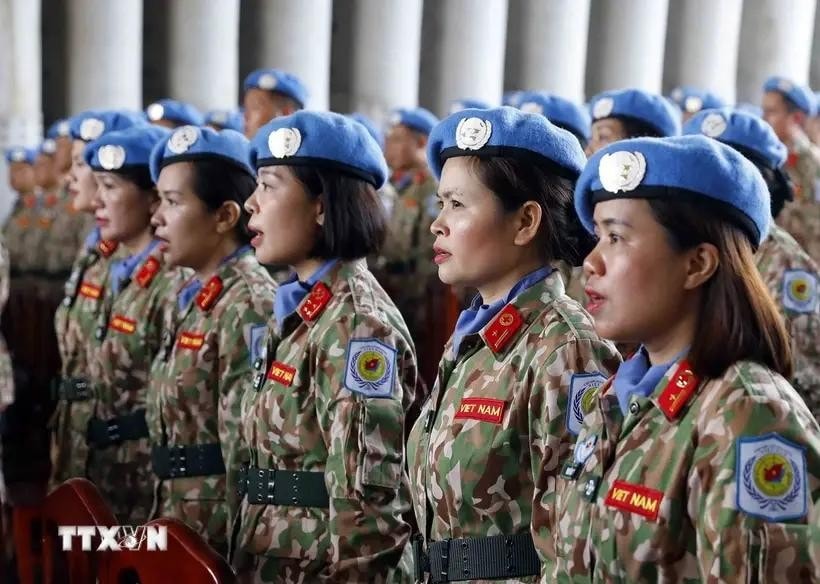UN Women welcomes launch of Vietnam’s first national action plan on WPS
The launch of Vietnam’s National Action Plan on Women, Peace, and Security comes at a critical juncture with global challenges impacting all.

The launch of Vietnam’s National Action Plan on Women, Peace, and Security (NAP WPS) comes at a critical juncture with global challenges impacting all, and women and girls all around the world’s continued facing of disproportionate vulnerabilities and discrimination makes this plan more crucial than ever, Sima Bahous, Executive Director of UN Women, said in her video message on the occasion of the country’s August 8 announcement of the plan.
“UN Women stands ready to support the government of Vietnam to extend partnership, leverage resources to ensure that no woman or girl is left behind,” Sima Bahous affirmed.
This first action plan is built based on the four pillars of the WPS agenda, namely participation, protection, prevention, and relief and recovery. It also has a section on international cooperation, emphasising Vietnam's dedication to collaborate with the global community to advance the WPS agenda.
Specifying the goals on women's full, equal, and meaningful participation in politics, diplomacy, national defence, security, and addressing gender-based violence, the NAP incorporates gender in its response to conflict, crisis, disaster, and emerging security challenges such as climate change and cyber security.
In conjunction with the launching, a workshop was conducted to develop the delivery plan of the NAP WPS led by the Vietnamese Ministry of Foreign Affairs and UN Women for effective implementation of the plan. Clear coordination, strong partnership and investment were identified as key drivers for the plan to transform the lives of women and girls and the broader efforts to sustain peace in the Southeast Asian country.
“The WPS agenda is wide ranging and cross-cutting. It requires effective coordination among multi-stakeholders, including leaders and managers at all levels: provinces, ministries, national women’s mechinary, academia, civil society, community-based and women’s organisations," she said.
“A clear and measurable plan for implementation provides a strong basis for financing and calling for increased investment in the WPS agenda with results that can be measured. In turn, this will keep the momentum and continued to garner political support from key relevant ministries and agencies in Vietnam,” said Ryce Chanchai, ASEAN Governance and ASEAN WPS Regional Programme Lead of UN Women.
The country has made significant progress in gender equality, demonstrating the political will and drive towards gender equality, including global ranking on gender equality improving from 83rd to 72nd out of 146 countries since the adoption of the 2030 Agenda for Sustainable Development, and the enactment of Gender Equality Law (2006) and the National Strategy on Gender Equality (2021-2030) and the Domestic Violence and Protection Law (2022)
At the international level, it has been a vocal advocate for the Women, Peace, and Security Agenda. Vietnam led the proposal of the UN Security Council Resolution 1889 in 2009, focusing on women’s role in post-conflict peacebuilding. During its tenure as a non-permanent member of the UN Security Council (2020-2021), the nation hosted an international conference themed "Enhancing Women’s Role in Peace Building and Consolidation: From Commitments to Results," adopting the Hanoi Commitment to Action with the co-sponsorship of 75 UN member states. Most recently, its commitment to promoting gender equality was further highlighted by its recent acceptance to be part of the Executive Board of UN Women for the term 2025-2027.
UN Women provided technical support to the Vietnamese government for the development of the NAP WPS since 2021, through the Ministry of Foreign Affairs, with the support from the Governments of Canada, the UK, Australia, and the Republic of Korea.
TB (according to VNA)
